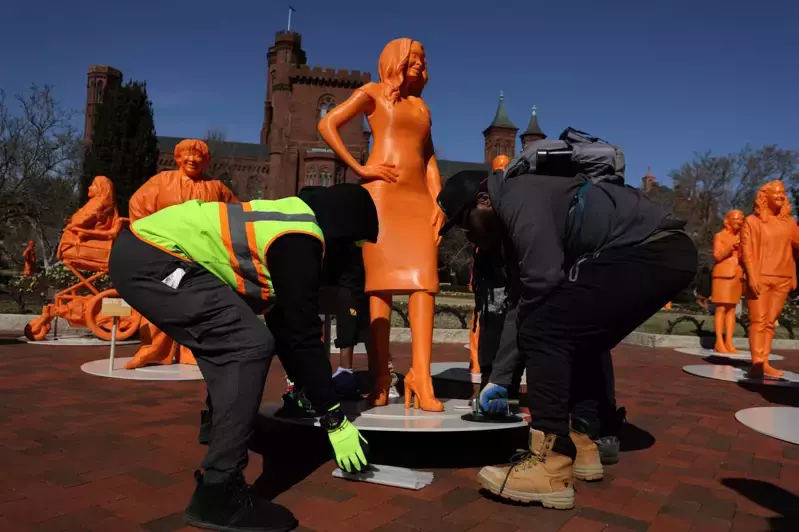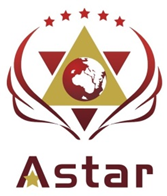企业抢才降低门槛 蓝领转进白领科技、金融业
世界新闻网
4/12/2022

新冠疫情冲击过后,美国的就业版图出现变化;华尔街日报(WSJ)报导,现在有愈来愈多来自基层职位的蓝领劳工,在疫情过后投身传统上须高学历、高技术的科技、金融等行业,其变革的态势堪称二次大战结束以来首见。
奥纬咨询(Oliver Wyman)调查8万名在仓储、传产、旅宿等产业工作的基层劳工后发现,超过10%的劳工在2020年8月至今年3月间,成功转到如资讯、金融、电子及医疗保健等通常须高学历、高技术或丰富经验才能谋得一职的领域。
奥纬咨询首席运营官安那·克雷亚契奇(Ana Kreacic)表示,当前就业版图变动幅度之大,堪称是二战结束以后,女性开始普遍投入职场,以及复员军人接受高等教育或职业训练、晋升中产阶级以来首见。
转职的基层劳工仍以年轻男性为主,67%为男性、77%在25岁至44岁间;W.E.艾普强就业研究所(W.E. Upjohn Institute for Employment Research)指出,这是因为如建筑、能源等以男性为主的行业转职的人数增长幅度最为鲜明。

造成此情景的原因众多;首先,疫情推动的数字化让科技业人力需求激增,又逢「大辞职」趋势等因素造成劳动人口下降,许多企业求才若渴,只能降低录取标准以招聘更多人手。
费城联邦准备银行1月发布的研究也发现,国内求职网中,薪资超过全国所得中位数、即3万6660元以上,而且不要求大学以上学历的工作机会,在疫情之后增加约230万个。
再来,许多基层劳工在疫情期间的失业或自动化压力下,通过各种课程或网站精进自身能力;领英(LinkedIn)发现,2020年至2021年间,完成在线专业证照课程的人数暴增1300%,第一线员工晋升中阶以上职位的人数自2019年以来增加12%。
也有不少基层劳工在疫情期间,有感于这些行业相对上工时更弹性,环境更佳且待遇优渥;例如成功从电视推销员转职到软件公司担任开发专员的阿雅拉(Alexis Ayala)表示,以前他的休息时间得在车上度过,现在他的办公室有健身房及免费点心。

USCIS Implements Risk-Based Approach for Conditional Permanent Resident Interviews
Release Date: 04/07/2022
WASHINGTON—U.S. Citizenship and Immigration Services (USCIS) today announced a policy update to adopt a risk-based approach when waiving interviews for conditional permanent residents (CPR) who have filed a petition to remove the conditions on their permanent resident status.
Effective immediately, new criteria will guide USCIS officers on when to waive interviews for CPRs who filed a Form I-751, Petition to Remove Conditions on Residence. This update replaces previous agency guidance that required all CPRs to undergo an interview if they obtained CPR status via consular processing.
“Implementing a risk-based strategic approach to the CPR-interview process will increase efficiencies that improve processing times, allow for a better use of agency staffing resources, and help reduce the pending caseload while still maintaining procedures to identify fraud and protect national security,” said USCIS Director Ur M. Jaddou. “This update is consistent with agency priorities to break down barriers in the immigration system, eliminate undue burdens on those seeking benefits, and effectively respond to stakeholder feedback and public concerns.”
Healthcare Certification and ESL Programs
Prior policy requiring mandatory CPR interviews did not prove to be an efficient use of USCIS staffing resources. Under this policy update, USCIS may waive the interview requirement if the agency officer determines there is sufficient evidence about the bona fides of the marriage, the joint-filing requirement is eligible for a waiver (if applicable), there is no indication of fraud or misrepresentation in supporting documents, there are no complex facts or issues to resolve, and there is no criminal history that would render the CPR removable.
A noncitizen who obtains permanent resident status based on a marriage that began less than two years before obtaining that status receives permanent resident status on a conditional basis for two years. To remove the conditions on permanent resident status, family-based CPRs generally must file a Form I-751 within the 90-day period before the two-year anniversary of when they obtained CPR status.
Visit the Policy Manual for Comment page to comment on this update.
For more information on USCIS and its programs, please visit uscis.gov or follow us on Twitter, Instagram, YouTube, Facebook, and LinkedIn.
Last Reviewed/Updated: 04/07/2022

USCIS: FY 2023 H-1B Cap Season Updates
Release Date: 03/29/2022
H-1B Initial Electronic Registration Selection Process Completed
U.S. Citizenship and Immigration Services has received enough electronic registrations during the initial registration period to reach the fiscal year (FY) 2023 H-1B numerical allocations (H-1B cap), including the advanced degree exemption (master’s cap). We randomly selected from among the registrations properly submitted to reach the cap. We have notified all prospective petitioners with selected registrations that they are eligible to file an H-1B cap-subject petition for the beneficiary named in the applicable selected registration.
Registrants’ online accounts will now show one of the following statuses for each registration (that is, for each beneficiary registered):
- Submitted: The registration has been submitted and is eligible for selection. If the initial selection process has been completed, this registration remains eligible, unless subsequently invalidated, for selection in any subsequent selections for the fiscal year for which it was submitted.
- Selected: Selected to file an H-1B cap petition.
- Denied: Multiple registrations were submitted by or on behalf of the same registrant for the same beneficiary. If denied as a duplicate registration, all registrations submitted by or on behalf of the same registrant for this beneficiary for the fiscal year are invalid.
- Invalidated-Failed Payment: A registration was submitted but the payment method was declined, rejected, disputed, or cancelled after submission.
For more information, visit the H-1B Electronic Registration Process page.
FY 2023 H-1B Cap Petitions May Be Filed Starting April 1
H-1B cap-subject petitions for FY 2023, including those petitions eligible for the advanced degree exemption, may be filed with USCIS beginning April 1, 2022, if based on a valid, selected registration.
Only petitioners with selected registrations may file H-1B cap-subject petitions for FY 2023, and only for the beneficiary named in the applicable selected registration notice.
An H-1B cap-subject petition must be properly filed with the correct service center and within the filing period indicated on the relevant registration selection notice. The period for filing the H-1B cap-subject petition will be at least 90 days. Online filing is not yet available for H-1B petitions, so petitioners filing H-1B petitions must do so by paper. Petitioners must include a printed copy of the applicable registration selection notice with the FY 2023 H-1B cap-subject petition.

Petitioners filing H-1B cap-subject petitions, including those petitions eligible for the advanced degree exemption, must still establish eligibility for petition approval at the time the petition is filed and through adjudication, based on existing statutory and regulatory requirements.
Selection in the registration process does not relieve the petitioner of submitting evidence or otherwise establishing eligibility, as registration only pertains to eligibility to file the H-1B cap-subject petition.
For more information, visit the H-1B Cap Season page.
Pre-paid Mailer Suspension
We will not use pre-paid mailers to send out any communication or final notices for fiscal year 2023 cap-subject H-1B petitions, including those requesting consideration under the advanced degree exemption.
The process of printing and mailing the cap-subject H-1B petition approval notices by first-class mail is fully automated. Using pre-paid mailers requires a separate, more time-consuming manual process. The existing automated process is more time efficient for both petitioners and USCIS. Because of this, we will use first-class mail as we work to process all cap-subject petitions in a timely manner.
Receipt Notice Delays
When we receive a timely and properly filed H-1B cap subject petition, the petitioner (and, if applicable, the petitioner’s legal representative) will be provided a Form I-797, Notice of Action, communicating receipt of the petition. Due to increased filing volumes typically seen during H-1B cap filing periods, there are instances where a petition is timely and properly filed, but issuance of the Form I-797 is delayed. If a petitioner has confirmation from the delivery service that the petition was delivered, but they have not yet received a Form I-797 confirming receipt of the petition, the petitioner should not submit a second petition. If a petitioner has confirmation from the delivery service that the petition was delivered and they then submit a second petition, the petitioner will be considered to have submitted duplicate petitions. This will result in denial or revocation of both petitions.
If more than 30 days have passed since the confirmation of delivery and the petitioner has still not received a Form I-797, the petitioner may contact the USCIS Contact Center for assistance.
If a petitioner receives notification from the delivery service, or their tracking information suggests, that there may be a delay or damage to the package or that the package was misrouted, the petitioner should follow the Delivery Service Error Guidance on the H-1B Cap Season webpage.
Last Reviewed/Updated: 03/29/2022
FY 2023 H-1B Cap Initial Registration Period Opens on March 1
Release Date: 01/28/2022
U.S. Citizenship and Immigration Services today announced that the initial registration period for the fiscal year 2023 H-1B cap will open at noon Eastern on March 1 and run through noon Eastern on March 18, 2022. During this period, prospective petitioners and representatives will be able to complete and submit their registrations using our online H-1B registration system.
USCIS will assign a confirmation number to each registration submitted for the FY 2023 H-1B cap. This number is used solely to track registrations; you cannot use this number to track your case status in Case Status Online.
Prospective H-1B cap-subject petitioners or their representatives are required to use a myUSCIS online account to register each beneficiary electronically for the selection process and pay the associated $10 H-1B registration fee for each registration submitted on behalf of each beneficiary. Prospective petitioners submitting their own registrations (U.S. employers and U.S. agents, collectively known as “registrants”) will use a “registrant” account. Registrants will be able to create new accounts beginning at noon Eastern on Feb. 21.
Representatives may add clients to their accounts at any time, but both representatives and registrants must wait until March 1 to enter beneficiary information and submit the registration with the $10 fee. Prospective petitioners or their representatives will be able to submit registrations for multiple beneficiaries in a single online session. Through the account, they will be able to prepare, edit, and store draft registrations prior to final payment and submission of each registration.
If we receive enough registrations by March 18, we will randomly select registrations and send selection notifications via users’ myUSCIS online accounts. We intend to notify account holders by March 31.
An H-1B cap-subject petition, including a petition for a beneficiary who is eligible for the advanced degree exemption, may only be filed by a petitioner whose registration for the beneficiary named in the H-1B petition was selected in the H-1B registration process.
Last Reviewed/Updated: 01/28/2022
How to Make an Expedite Request
ALERT: If you are a healthcare worker
ALERT: If you are a healthcare worker
If you are a healthcare worker
- Who has a pending Employment Authorization Document (EAD) renewal application (Form I-765, Application for Employment Authorization); and
- Whose EAD expires within 30 days or less, or has already expired:
Call the USCIS Contact Center at 800-375-5283 (TTY 800-767-1833) to request expedited processing of your EAD based on your circumstance as a healthcare worker with an EAD that will expire within 30 days or has already expired. To determine whether you are a qualifying healthcare worker, see this DHS advisory memorandum (“Healthcare / Public Health” section, pages 7-9) (PDF). Be prepared to provide evidence of your profession or current employment as a healthcare worker. If the evidence you provide is not sufficient, we may not accommodate your request for expedited processing of your Form I-765. Expedited processing means only that USCIS will process the application faster.
In General
You may ask USCIS to expedite adjudication of a benefit request (such as an application or petition) for an immigration benefit.
USCIS:
- Considers all expedite requests on a case-by-case basis;
- May require additional documentation to support a request; and
- Has the sole discretion to decide whether to accommodate a request.
Because granting an expedite request means that USCIS would adjudicate the requestor’s benefit ahead of others who filed earlier, we carefully weigh the urgency and merit of each expedite request. We may consider an expedite request if it meets one or more of the following criteria or circumstances:
- Severe financial loss to a company or person, provided that the need for urgent action is not the result of the petitioner’s or applicant’s failure to:
- Timely file the benefit request, or
- Timely respond to any requests for additional evidence;
A company can demonstrate that it would suffer a severe financial loss if it is at risk of failing, losing a critical contract, or having to lay off other employees. For example, a medical office may suffer severe financial loss if a gap in a doctor’s employment authorization would require the medical practice to lay off its medical assistants.
Job loss may be sufficient to establish severe financial loss for a person, depending on the individual circumstances. For example, the inability to travel for work that would result in job loss might warrant expedited treatment. The need to obtain employment authorization by itself, without evidence of other compelling factors, does not warrant expedited treatment. In addition, severe financial loss may also be established where failure to expedite would result in a loss of critical public benefits or services.
- Emergencies and urgent humanitarian reasons;
In the context of an expedite request, humanitarian reasons are those related to human welfare. Examples may include, but are not limited to, illness, disability, extreme living conditions, death in the family, or a critical need to travel to obtain medical treatment in a limited amount of time. An emergency may include an urgent need to expedite employment authorization for healthcare workers during a national emergency such as the COVID-19 pandemic. Additionally, an expedite request may be considered under this criterion in instances where a vulnerable person’s safety may be compromised due to a breach of confidentiality if there is a delay in processing the benefit application. A benefit requestor’s desire to travel for vacation does not, in general, meet the definition of an emergency.
- Nonprofit organization (as designated by the Internal Revenue Service) whose request is in furtherance of the cultural or social interests of the United States;
A nonprofit organization seeking to expedite a beneficiary’s benefit request must demonstrate an urgent need to expedite the case based on the beneficiary’s specific role within the nonprofit in furthering cultural or social interests (as opposed to the organization’s role in furthering social or cultural interests). Examples may include a medical professional urgently needed for medical research related to a specific social U.S. interest (such as the COVID-19 pandemic or other socially impactful research or project) or a university professor urgently needed to participate in a specific and imminent cultural program. Another example is a religious organization that urgently needs a beneficiary’s specific services and skill set to continue a vital social outreach program. In such instances, the religious organization must articulate why the respective beneficiary is specifically needed, as opposed to pointing to a general shortage alone.
- U.S. government interests (such cases identified as urgent by federal agencies such as the U.S. Department of Defense, U.S. Department of Labor, National Labor Relations Board, Equal Opportunity Commission, U.S. Department of Justice, U.S. Department of State, U.S. Department of Homeland Security, or other public safety or national security interests); or
U.S. government interests may include, but are not limited to, cases identified as urgent by other government agencies, including labor and employment agencies, and public safety or national security interests.
For expedite requests made by a federal agency, involving other public safety or national security interests, the national interest need must be immediate and substantive. If the need for the action is not immediate, expedited processing is not warranted. A substantive need does not mean that a delay would pose existential or irreversible consequences to the national interests but rather that the case at hand is of a scale or a uniqueness that requires immediate action to prevent real and serious harm to U.S. interests.
Expedite requests from government agencies (federal, state, or local) must be made by a senior-level official of that agency. If the request relates to employment authorization, the request must demonstrate that the need for a person to be employment-authorized is mission-critical and goes beyond a general need to retain a particular worker or person. Examples include, but are not limited to, a noncitizen victim or witness cooperating with a federal, state, or local agency who is in need of employment authorization because the respective agency is seeking back pay or reinstatement in court proceedings.
- Clear USCIS error.
Not every circumstance that fits in one of these categories will result in expedited processing.
For more information, see USCIS Policy Manual, Volume 1, Part A, Public Services, Chapter 5, Requests to Expedite Applications or Petitions [1 USCIS-PM A.5].
You can generally request expedited processing by calling the USCIS Contact Center at 800-375-5283 (TTY 800-767-1833) or by asking Emma after you have obtained a receipt notice. (You can access Emma by clicking on the Ask Emma icon on the top right of this page). The USCIS Contact Center will not be able to refer the expedite request to the appropriate office without a receipt number.
When you call to request expedited processing, the USCIS Contact Center creates and forwards a service request to the office with jurisdiction over your application or petition. After receiving the service request, the reviewing office may request additional documentation to support expedited processing. A decision on an expedite request is not an approval or a denial of the underlying benefit request. The expedite decision simply informs the requestor whether USCIS will take the benefit request out of date order and issue a decision (approval or denial) faster than the normal processing time.
In accordance with the criteria above, note specific handling procedures in the following circumstances:
Adoptions
See the USCIS Adoption Contact Information webpage for information on how to make expedite requests for adoption cases.
Appeals
Requests for expedited processing of appeals may be included with the appeal. Expedite requests included with the appeal will be reviewed by the office that issued the decision.
For appeals filed with the Administrative Appeals Office (AAO), any expedite request made after the appeal submission should be mailed or faxed directly to AAO. See AAO’s Processing Requests and Contacting the AAO pages for more information.
Regardless of whether the expedite request is submitted with the appeal or afterward, the expedite request should include:
- A cover letter clearly marked “EXPEDITE REQUEST”; and
- Documentary evidence supporting the request for expedited processing of the appeal.
Requests for expedited processing of appeals filed with the Board of Immigration Appeals (BIA) should follow the BIA expeditious handling procedures.
Applications for Asylum
Requests for expedited processing on asylum applications should be directed to the office with jurisdiction over the asylum application. See the Affirmative Asylum Interview Scheduling page for more information.
Benefit Requests Pending Outside the United States
Send requests for expedited processing of applications for refugee status to the Resettlement Support Center handling the case abroad. For more information, see the USCIS Questions and Answers: Refugees page.
Send requests for expedited processing of humanitarian parole for beneficiaries located outside of the United States to the Humanitarian Affairs Branch. For more information, see the Humanitarian or Significant Public Benefit Parole for Individuals Outside the United States page.
For all other immigration benefit requests pending with USCIS offices located outside the United States, you may request expedited processing by submitting a written request, along with any supporting documentation, directly to the USCIS office with the benefit request.
For contact information for USCIS offices located outside the United States, see the USCIS International Immigration Offices page. Requests for expedited processing on matters pending with Department of State (DOS) should follow DOS expeditious handling procedures.
Last Reviewed/Updated: 01/25/2022
USCIS Provides Clarifying Guidance for O-1 Petitions with a Focus on STEM Fields
Release Date 01/21/2022
U.S. Citizenship and Immigration Services today issued policy guidance clarifying how it evaluates evidence to determine eligibility for O-1A nonimmigrants of extraordinary ability, with a focus on petitions filed for individuals in science, technology, engineering, or math (STEM) fields, as well as how USCIS determines whether an O-1 beneficiary’s prospective work is within their area of extraordinary ability or achievement.
Individuals of extraordinary ability in the sciences, education, business, or athletics may be eligible for O-1A classification. The new update provides examples of evidence that may satisfy the O-1A evidentiary criteria and discusses considerations that are relevant to evaluating such evidence, with a focus on the highly technical nature of STEM fields and the complexity of the evidence often submitted.
The update also emphasizes that, if a petitioner demonstrates that a particular criterion does not readily apply to their occupation, they may submit evidence that is of comparable significance to that criterion to establish sustained acclaim and recognition, and it provides examples of possible comparable evidence that may be submitted in support of petitions for beneficiaries working in STEM fields.
In addition, the update explains that when evaluating whether an individual of extraordinary ability is coming to work in their “area of extraordinary ability,” officers will focus on whether the prospective work involves skillsets, knowledge, or expertise shared with the occupation(s) in which the individual garnered acclaim.
Visit the Policy Manual for Comment page to comment on this update. For more information, see the policy manual update (PDF, 363.79 KB).
Last Reviewed/Updated: 01/21/2022
USCIS Updates Guidance on National Interest Waivers
Release Date 01/21/2022
U.S. Citizenship and Immigration Services today announced updated guidance on adjudicating requests for “National Interest Waivers” regarding job offer and labor certification requirements for certain advanced degree professionals and individuals of exceptional ability. This includes discussing the unique considerations for persons with advanced degrees in science, technology, engineering, and math (STEM) fields and entrepreneurs.
Consistent with this Administration’s goal of removing barriers to legal immigration under President Biden’s Executive Order 14012, Restoring Faith in Our Legal Immigration Systems and Strengthening Integration and Inclusion Efforts for New Americans, USCIS is clarifying how the national interest waiver can be used by STEM graduates and entrepreneurs, as well as the significance of letters from governmental and quasi-governmental entities. The updated guidance also serves to promote effective and efficient processing of benefits consistent with the executive order.
An employer seeking to hire a noncitizen must generally obtain a permanent labor certification from the Department of Labor that proves there are no qualified U.S. workers for the position they are seeking and that their employment will not adversely affect similarly employed U.S. workers. The noncitizen may, however, seek a waiver of a job offer, and of the labor certification, if it is in the interest of the United States.
Individuals seeking a national interest waiver must show evidence of an advanced degree or exceptional ability and must also meet three factors that USCIS uses to determine, in its discretion, whether it is in the national interest that USCIS waive the requirement of a job offer, and thus the labor certification. The three factors USCIS considers for a national interest waiver are whether:
- The person’s proposed endeavor has both substantial merit and national importance;
- The person is well positioned to advance the proposed endeavor; and
- It would be beneficial to the United States to waive the job offer and thus the permanent labor certification requirements.
Those seeking a national interest waiver may self-petition using Form I-140, Immigrant Petition for Alien Worker.
This guidance, contained in Volume 6 of the Policy Manual, is effective immediately. The guidance contained in the Policy Manual is controlling and supersedes any related prior guidance.
Visit the Policy Manual for Comment page to comment on this update.
Last Reviewed/Updated: 01/21/2022
USCIS Conducts Third Random Selection from Previously Submitted FY 2022 H-1B Cap Registrations
Release Date 11/19/2021
We recently determined that we needed to select additional registrations to reach the fiscal year (FY) 2022 H-1B numerical allocations, including the advanced degree exemption. On Nov. 19, we selected from among previously submitted electronic registrations using a random selection process. The petition filing period based on registrations selected on Nov. 19 will begin on Nov. 22, 2021, and close on Feb. 23, 2022. Individuals with selected registrations will have their myUSCIS accounts updated to include a selection notice, which includes details about when and where to file.
In July 2021, we conducted a second random selection from among properly submitted electronic registrations for the FY 2022 H-1B numerical allocations. The petition filing period based on registrations selected in July ended on Nov. 3, 2021.
We conducted an initial selection in March 2021. The initial filing period for those with selected registrations for FY 2022 was from April 1, 2021, through June 30, 2021. Per regulation, we take into account historical data related to approvals, denials, revocations, and other relevant factors to calculate the number of registrations needed to meet the H-1B numerical allocations for a given fiscal year. Only those petitioners with selected registrations for FY 2022 are eligible to file H-1B cap-subject petitions.
An H-1B cap-subject petition must be properly filed at the correct service center and within the filing period indicated on the relevant registration selection notice. Online filing is not available for H-1B petitions. Petitioners filing H-1B petitions must do so by paper and must include a printed copy of the applicable registration selection notice with the FY 2022 H-1B cap-subject petition.
Registration selection only indicates that petitioners are eligible to file H-1B cap-subject petitions; it does not indicate that the petition will be approved. Petitioners filing H-1B cap-subject petitions, including those petitions eligible for the advanced degree exemption, must still submit evidence and establish eligibility for petition approval based on existing statutory and regulatory requirements.
For more information, visit the H-1B Cap Season page.
Last Reviewed/Updated: 11/19/2021
Employment authorization implemented for Hong Kong residents covered under Deferred Enforced Departure
By Berry Appleman & Leiden LLP
10/20/2021
U.S. Citizenship and Immigration Services (USCIS) provided information today on how Hong Kong residents covered by Deferred Enforced Departure (DED) apply for employment authorization.
Key Points:
- DED and employment authorization for noncitizens covered by DED for Hong Kong is effective from Aug. 5, 2021, through Feb. 5, 2023, except for noncitizens who:
- Have voluntarily returned to Hong Kong or the People’s Republic of China (PRC) after Aug. 5, 2021.
- Have not continuously lived in the U.S. since Aug. 5, 2021.
- Are inadmissible under the Immigration and Nationality Act.
- Have been convicted of any felony or two or more misdemeanors in the U.S.
- Are subject to extradition.
- Are considered a present danger to public safety or have potentially serious adverse foreign policy consequences for the U.S. if they remain in the country.
- USCIS said Wednesday that Hong Kong residents can apply for an Employment Authorization Document by submitting a completed Form I-765, Application for Employment Authorization.
- Individuals can apply for travel authorization by submitting, Form I-131, Application for Travel Document.
Additional Information: Eligibility requirements for Hong Kong residents who are covered by DED are based on the terms described in the President Joe Biden’s directive and any relevant requirements established by the Department of Homeland Security. The full USCIS announcement can be found here.
USCIS Implements Employment Authorization for Individuals Covered by Deferred Enforced Departure for Hong Kong Residents
Release Date: 10/20/2021
Eligible Hong Kong Residents May Apply for EADs and Travel Authorization
WASHINGTON — U.S. Citizenship and Immigration Services (USCIS) today issued a Federal Register notice with information on how to apply for employment authorization for eligible Hong Kong residents covered under the president’s Aug. 5 memorandum directing Deferred Enforced Departure (DED) for 18 months, through Feb. 5, 2023.
DED for Hong Kong residents applies only to certain eligible Hong Kong residents who were present in the United States as of Aug. 5, 2021; who have continuously resided here since that date; and who meet other eligibility criteria described in the president’s memorandum. For purposes of this DED policy, Hong Kong residents are individuals of any nationality, or without nationality, who have met the requirements and been issued a Hong Kong Special Administrative Region (HKSAR) passport, a British National Overseas passport, a British Overseas Citizen passport, a Hong Kong Permanent Identity Card, or an HKSAR Document of Identity for Visa Purposes.
There is no application for DED. Eligibility requirements for Hong Kong residents who are covered under DED are based on the terms described in the president’s directive and any relevant implementing requirements established by the Department of Homeland Security.
Eligible Hong Kong residents may apply for an Employment Authorization Document by submitting a completed Form I-765, Application for Employment Authorization. Eligible Hong Kong residents covered by the president’s DED memorandum may also receive travel authorization. Individuals must file Form I-131, Application for Travel Document, for advance parole if they wish to travel based on DED.
For more information on USCIS and its programs, please visit uscis.gov or follow us on Twitter, Instagram, YouTube, Facebook and LinkedIn.
Last Reviewed/Updated: 10/20/2021

USCIS Extends Flexibility for Responding to Agency Requests
Release Date: 09/24/2021
In response to the coronavirus (COVID-19) pandemic, U.S. Citizenship and Immigration Services is extending the flexibilities it announced on March 30, 2020, to assist applicants, petitioners and requestors who are responding to certain:
- Requests for Evidence;
- Continuations to Request Evidence (N-14);
- Notices of Intent to Deny;
- Notices of Intent to Revoke;
- Notices of Intent to Rescind;
- Notices of Intent to Terminate regional centers; and
- Motions to Reopen an N-400 Pursuant to 8 CFR 335.5, Receipt of Derogatory Information After Grant.
In addition, USCIS will consider a Form I-290B, Notice of Appeal or Motion, or Form N-336, Request for a Hearing on a Decision in Naturalization Proceedings (Under Section 336 of the INA), if:
- The form was filed up to 60 calendar days from the issuance of a decision we made; and
- We made that decision anytime from March 1, 2020, through Jan. 15, 2022
Notice/Request/Decision Issuance Date:
This flexibility applies to the above documents if the issuance date listed on the request, notice or decision is between March 1, 2020, and Jan. 15, 2022, inclusive.
Response Due Date:
USCIS will consider a response to the above requests and notices received within 60 calendar days after the response due date set in the request or notice before taking any action. Additionally, we will consider a Form N-336 or Form I-290B received up to 60 calendar days from the date of the decision before we take any action.
Please visit uscis.gov/coronavirus for USCIS updates.
Last Reviewed/Updated: 09/24/2021
USCIS Extends Evidence of Status for Conditional Permanent Residents to 24 Months with Pending Form I-751 or Form I-829
Release Date: 09/03/2021
Starting Sept. 4, 2021, USCIS is extending the time that receipt notices can be used to show evidence of status from 18 months to 24 months for petitioners who properly file Form I-751, Petition to Remove Conditions on Residence, or Form I-829, Petition by Investor to Remove Conditions on Permanent Resident Status. We are making the change from 18 to 24 months to accommodate current processing times for Form I-751 and Form I-829, which have increased over the past year.
Conditional permanent residents who properly file Form I-751 or Form I-829 will receive a receipt notice that can be presented with their Form I-551, Permanent Resident Card (also known as a Green Card), as evidence of continued status for up to 24 months past the expiration date on their Green Card, while their case remains pending with USCIS.
Additionally, we will issue new receipt notices to eligible conditional permanent residents who properly filed their Form I-751 or Form I-829 before Sept. 4 and whose cases are still pending. Those receipt notices will also serve as evidence of continued status for 24 months past the expiration date on their Green Card.
As a reminder, conditional permanent residents who plan to be outside of the United States for a year or more should apply for a reentry permit by filing Form I-131, Application for Travel Document, before leaving the country. For more information on International Travel as a Permanent Resident, see our Green Card page.
Last Reviewed/Updated: 09/03/2021





